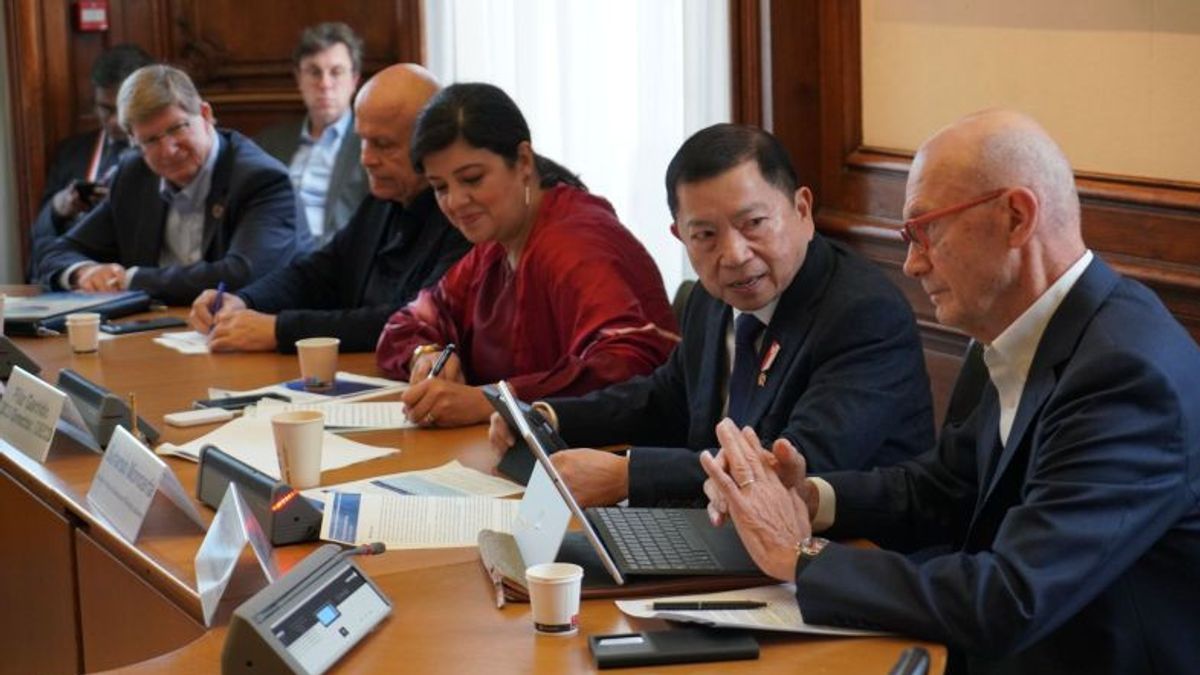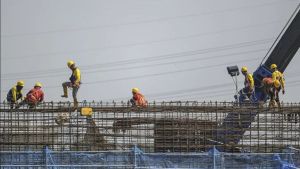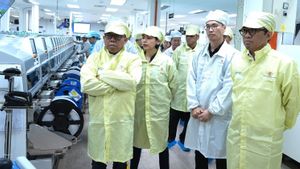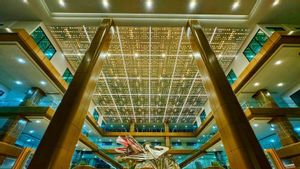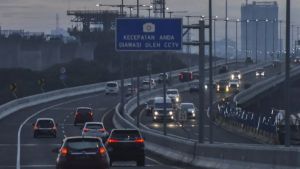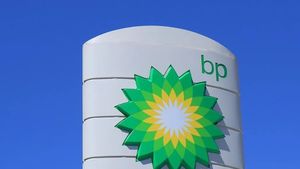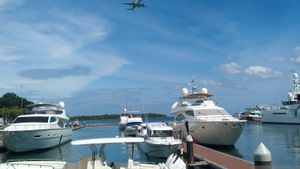JAKARTA - Minister of National Development Planning/Head of the National Development Planning Agency (PPN/Bappenas) Suharso Monoarfa stated that The Organization for Economic Cooperation and Development (OECD) of Guidance of Sustainable Ocean Economy will guide the implementation of the blue economy in Indonesia.
"This initiative, with the principle of creating added value and quality jobs, will ensure an inclusive and sustainable path towards blue economy development," he said at the OECD Sustainable Ocean for All Initiatives: The Development of Guidance for Development Cooperation for a Sustainable Ocean Economy in Paris, France, quoted from ANTARA, Saturday, October 7.
Indonesia has 95 percent of the population at 100 kilometers (km) from the coastline and 40 million rural residents who depend on the marine for food and livelihood. The blue economy employs 7 million people, and 40 percent of global marine trade crosses a path across Indonesia.
The annual value of the Indonesian marine economy reached more than 280 billion US dollars with marine and manufacturing development as the two main sectors.
Furthermore, the blue economy in Indonesia grew 10.5 percent per year during the 2012-2022 period, surpassing national growth by 5 percent. National marine fisheries production also experienced a trade surplus of 4.12 billion US dollars in 2018, which showed great demand from the international market.
"Indonesia needs to increase the contribution of the maritime industry to the national GDP (Gross Domestic Product) which reaches 2.04 percent, compared to the national GDP growth rate of 3.69 percent in 2021," said Suharso.
Regarding the development strategy of the blue economy in Indonesia, it includes the launch of the National Blue Agenda Action Partnership, partnerships with Stanford University in the Blue Food Assessment, to the Indonesia Blue Economy Roadmap with six main sectors. Starting from maritime transportation and logistics, fisheries and marine agriculture, marine tourism, renewable marine energy, marine biotechnology, and coastal spatial management.
According to the Head of Bappenas, Indonesia Blue Economy Roadmap outlines our commitment to balance socio-economic growth with environmental sustainability.
As the holder of the Chairship of ASEAN 2023, Indonesia is said to have succeeded in making the ASEAN Blue Economy Framework a reference for sharing data analysis, technical expertise, funding and resources, as well as capacity building and transfer of blue economic knowledge.
"OECD to move with us in advancing the Indonesian Blue Economy and ASEAN Blue Economy Framework initiative in 2024. We can work together towards more sustainable, prosperous, and fair marine values for the future of the world, Indonesia, the ASEAN region, and its surroundings," he said.
After playing a non-economy member, he continued, Indonesia will soon become a member of OECD.
On Thursday (5/10), Indonesia has put forward plans to join the OECD as one of the strategies to realize development targets in accordance with the mandate of the 2045 Golden Indonesia Vision.
In a meeting with OECD Secretary General Mathias Cormann in Paris, Thursday (5/10), Suharso emphasized Indonesia's commitment to carrying out development that encourages prosperity, equality, opportunity, and prosperity in the social, economic and environmental aspects, towards a developed economy by 2045.
"We have homework to do, regarding the development of a blue economy, a green economy, out of the middle income trap, and many others. By joining the OECD, it will provide great opportunities for us to reform and transform Indonesia to international standards in these aspects," said the Minister of VAT.
Indonesia's membership in OECD is said to be encouraging blue economic cooperation or between the Ministry of National Development Planning/Bappenas and OECD which will contribute to the commitment of the country to carry out sustainable development goals.
The blue economy is considered as an effort to optimize economic growth sourced from the use of marine resources in an inclusive and sustainable manner, thus supporting marine conservation and its supporting ecosystems.
Indonesia-OECD cooperation related to the blue economy is expected to expand access to data sharing, analysis, and expert experience so that Indonesia can get a comprehensive evaluation related to the potential of the blue economy in the country.
One of the efforts to carry out this collaboration is to form a task force regarding the ASEAN blue economy as a guide to implement the steps. Indonesia also plans to hold the second ASEAN Blue Economy Forum to continue the process.
The English, Chinese, Japanese, Arabic, and French versions are automatically generated by the AI. So there may still be inaccuracies in translating, please always see Indonesian as our main language. (system supported by DigitalSiber.id)
